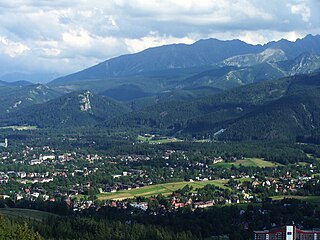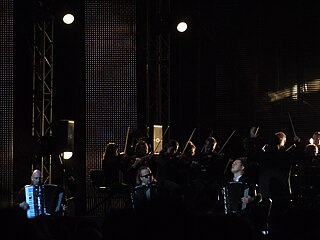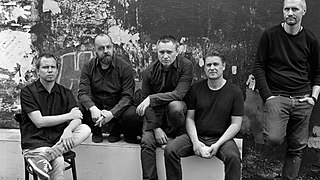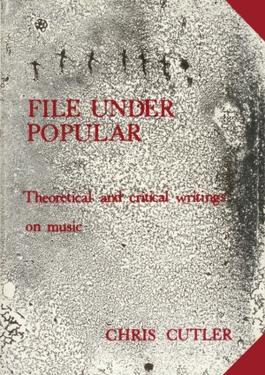
The history of Poland spans over a thousand years, from medieval tribes, Christianization and monarchy; through Poland's Golden Age, expansionism and becoming one of the largest European powers; to its collapse and partitions, two world wars, communism, and the restoration of democracy.

Kraków, also seen spelled Cracow or absent Polish diacritics as Krakow, is the second-largest and one of the oldest cities in Poland. Situated on the Vistula River in Lesser Poland Voivodeship, the city dates back to the seventh century. Kraków was the official capital of Poland until 1596, and has traditionally been one of the leading centres of Polish academic, economic, cultural and artistic life. Cited as one of Europe's most beautiful cities, its Old Town with Wawel Royal Castle was declared a UNESCO World Heritage Site in 1978, one of the world's first sites granted the status.

Zakopane is a town in the south of Poland, in the southern part of the Podhale region at the foot of the Tatra Mountains. From 1975 to 1998, it was part of Nowy Sącz Voivodeship; since 1999, it has been part of Lesser Poland Voivodeship. As of 2017 its population was 27,266. Zakopane is a centre of Goral culture and is often referred to as "the winter capital of Poland". It is a popular destination for mountaineering, skiing, and tourism.
The Music of Poland covers diverse aspects of music and musical traditions which have originated, and are practiced in Poland. Artists from Poland include world-famous classical composers like Frédéric Chopin, Karol Szymanowski, Witold Lutosławski, Henryk Górecki and Krzysztof Penderecki; renowned pianists like Karl Tausig, Ignacy Jan Paderewski, Arthur Rubinstein and Krystian Zimerman; as well as popular music artists, and traditional, regionalised folk music ensembles that create a rich and lively music scene at the grassroots level. The musicians of Poland, over the course of history, have developed and popularized a variety of music genres and folk dances such as mazurka, polonaise, krakowiak, kujawiak, polska partner dance, oberek; as well as the sung poetry genre and others. Mazurek (Mazur), Krakowiak, Kujawiak, Oberek and Polonaise (Polonez) are registered as Polish National Dances, originating in early Middle Ages. The oldest of them is Polonaise that comes from the Medieval pageant dances and it was originally called "chodzony", a "walking dance".

Gorzów Wielkopolski, often abbreviated to Gorzów Wlkp. or simply Gorzów, is a city in western Poland, on the Warta river. It is the second largest city in the Lubusz Voivodeship with 120,087 inhabitants and one of its two capitals with a seat of a voivode, with the other being Zielona Góra.

John I Albert was King of Poland from 1492 to his death and Duke of Głogów from 1491 to 1498. He was the fourth Polish sovereign from the Jagiellonian dynasty and the son of Casimir IV and Elizabeth of Austria.

Zeena Parkins is an American composer and multi-instrumentalist active in experimental, free improvised, contemporary classical, and avant-jazz music; she is known for having "reinvented the harp". Parkins performs on standard harps, several custom electric harps, piano, and accordion. She is a 2019 Guggenheim Fellow and professor in the Music Department at Mills College.
The Edmonton Symphony Orchestra (ESO) is a Canadian orchestra based in Edmonton, Alberta. As the professional orchestra of Alberta's creative capital city it presents over 85 concerts a year of symphonic music in all genres, from classical to country. Currently in its 72nd season, the orchestra is composed of 56 core professional musicians who perform 42 weeks per season and who play an active role in the musical life of Edmonton and elsewhere as performers, teachers and recording artists. The ESO also performs as the orchestra for Edmonton Opera and Alberta Ballet productions, and its recordings are regularly heard across Canada on CBC Radio 2.

The Police is the Polish national civilian police force. It is a primary law enforcement agency in the country, tasked with providing public safety and order, investigating and preventing crime.

Lower Silesia is a historical and geographical region mostly located in Poland with small portions in the Czech Republic and Germany. It is the western part of the region of Silesia.

The "cursed soldiers" or "indomitable soldiers" were a heterogeneous array of anti-Soviet-imperialist and anti-communist Polish resistance movements formed in the later stages of World War II and in its aftermath by members of the Polish Underground State. The above terms, introduced in the early 1990s, reflect the stance of many of the diehard soldiers.

Bereza Kartuska Prison was operated by Poland's Sanation government from 1934 to 1939 in Bereza Kartuska, Polesie Voivodeship. Because the inmates were detained without trial or conviction, it is considered an internment camp or concentration camp.

Motion Trio is a Polish accordion trio founded in 1996 by Janusz Wojtarowicz.

Variété is a new-wave and cold-wave band from Poland, considered the leading pioneers of that genre in 1980s. The group is continually evolving and their music can be now described as an original blend of jazz, minimal and trip-hop.

File Under Popular: Theoretical and Critical Writings on Music is a collection of seven essays on the political theory of popular music written by English percussionist, lyricist and music theorist, Chris Cutler. The essays were written between 1978 and 1983, four of them in response to requests and the rest unprompted. Two of the essays were first published in two German publications, and two were originally presented by Cutler at two international symposia on popular music. The book was first published in 1985 in London by November Books, the publishing wing of Cutler's independent record label, Recommended Records. It was also published in Polish, German and Japanese.

Capella Cracoviensis is a period instrument ensemble and a chamber choir based in Kraków, Poland. It was formed in 1970 by composer and music conductor Stanisław Gałoński, its first director and general manager. Capella Cracoviensis specializes in early music, Renaissance polyphonies, Polish Baroque, and classical chamber music played on period instruments, as well as oratorios, and operatic scores including works of Mozart. Regular performances in many world-renowned venues have confirmed its status as one of the Poland's most outstanding period instrument ensembles.

"I Knew I'd Want You" is a song by the folk rock band the Byrds, written by band member Gene Clark, and first released as the B-side to their 1965 debut single, "Mr. Tambourine Man". It was also later included on their debut album, Mr. Tambourine Man.

Małgorzata Walewska is a Polish opera singer, dramatic mezzo-soprano.

Janusz Józef Muniak was a Polish jazz musician, saxophonist, flutist, arranger, and composer. He was one of the pioneers of free jazz in Europe, although later in life tended towards the mainstream.

Rafał Siwek is a Polish opera singer (bass).

















